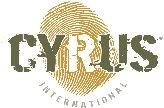Knowledge Quest: Upper Level Homeschool
Mel's Thoughts:
From the creators of the Homeschooling ABCs course, comes Upper Level Homeschooling, a course for homeschooling parents to take, in order to help them learn how to give their older children/teens the best education possible. All together there are thirteen lessons, scheduled to be delivered to your inbox once every week over the course of thirteen weeks. That way the information can be given in smaller, more manageable chunks, and you, as a parent, can process the information over time. Sometimes your course, or lesson, even comes with free homeschooling resources, which can be quite helpful, such as worksheets, hyperlinks, or samples of curriculum. There is an assignment for you at the end of each lesson, so that you can apply what you have learned to your style and form of homeschooling.

Lesson 1: Mapping a 4 Year Course of Study- This lesson focuses on helping you to find your state's requirements for earning a diploma. What courses will your child have to take in order to graduate? Terri Johnson shows you how to map out your teen's plan of education for all four years. With a simple chart, figuring in your child's interests and needs, you can tentatively plan out the courses your child will take in simple form. The key is to be flexible with the chart, as your child may not feel comfortable with certain courses until a later time, or one subject may not be available. Terri also lists some courses that make great electives. This is a simple process, yet one that is so vital to not only your child's education, but your peace of mind.
Lesson 2: Designing a Course for High School Credit- This lesson teaches you how to award credit to your child, based on three different ways: the time method, the book method, and the mastery method. Each method is described in detail with examples and links for extra help. The lesson goes on to teach you how to design your child's course of study, so that you can know which method/s you are using to grant your child due credit for the courses he is taking. Umbrella school links are listed, so that if you don't feel comfortable keeping track of the credits by yourself, you can check them out to see what they offer. One thing I didn't agree with was the statement that we don't have to keep track of hours or keep a log of time spent on each subject. In Missouri, we do have to keep a time log; it is mandatory by law. Otherwise, this lesson is so very informative and helpful to understanding how those credits on your child's transcript work.
Lesson 3: Outsourcing Difficult Subjects- This lesson helps you to see what outsourcing is and how you can go about finding out more information for your student. Maybe there are a couple of subjects you don't exactly feel comfortable teaching, or maybe you feel your child might benefit from taking a class with others. Either way, online or local classes might be a way to go for these specific subjects. Terri gives several links and much advice on determining which classes you will teach and which you might give over to someone else to teach.
Lesson 4: Starting and Maintaining a Transcript- This lesson covers record-keeping and transcripts, with the advice of Janice Campbell from Everyday Education. Janice gives 5 steps toward simpler ways to keep your records and transcripts organized, filled in, and prepared, even giving advice on how to figure up the grades and grade point averages. She even includes A Four-Year Plan for High School. There's also a blank transcript form included that you can try out for yourself.
Lesson 5: Developing Good Study Habits- This lesson is just jam packed with useful information; meant to help the parent teach their teens how to study and manage time, I feel I learned a lot myself. Terri covers three basic topics: Ordered Use of Space, Efficient Use of Time, and Deliberate Use of Brain. I plan to read the two books that she mentioned as resources myself, in order to help me balance out my time better, as a work at home mom. I also plan to start using some of the nutritional and organizing tidbits with Jacob now; that way when he gets to his teen years, maybe he'll have just a bit of a headstart. I can't say enough good things about this lesson.
Lesson 6: Preparing for Aptitude Tests- SAT/ACT- This lesson focuses on preparing for the aptitude tests your child might need, in order to get into college. Terri takes you through details of the PSAT, the SAT I Reasoning Test, the SAT II Subject Tests, and the ACT Exam. She explains what is included on each test, how each test is scored, and lists resources you might get to help your child study for the tests. There are even suggestions on when to schedule and take the tests. This is a very helpful section for parents of juniors/seniors, especially.
Lesson 7: Tackling the Timed Essay- This lesson is written by a guest writer, Kim Kautzer, of WriteShop. If you are nervous about the timed essay writing on the SAT, or you are just nervous about teaching your child writing, in general, I definitely recommend this lesson. Kim takes you through the ins and outs of writing an essay and discusses how a student should go about this important task. With pointers and examples, you can feel a bit more confident in teaching your child how to write and preparing him for college writing.
Lesson 8: Taking Courses for Dual Credit- This lesson focuses on the advantages, disadvantages, and options that may come with your student taking courses, for dual credit, at a local junior or community college. It gives you more of an idea of how this might work and where to get more information, so that you and your child can be more prepared.
Lesson 9: CLEP Testing for College Credit- This lesson focuses on CLEP tests and AP Tests, the differences between them, the advantages of both, and the disadvantages of both. It helps you to gain a better understanding of how your teen can get ahead before he ever enters the college realm. This was a very interesting chapter to me, since it provided many links and resources for extra research and help. I'm very interested in this for my children when they eventually get to the age when they're considering colleges.
Lesson 10: Planning and Preparing for College- This lesson is written by JoJo Tabares, and she gives all kinds of hints, tips, and ways to get your child ready for college. She even suggests that you begin the process back in 7th or 8th grade. This is a lesson not to be missed by any homeschooler/homeschooling parent, as it could help you to prepare your child for future college success.
Lesson 11: Applying for Financial Aid- This lesson is jam packed full of great information on all the types of financial aid. It covers the differences between scholarships, grants, and student loans. I did find that it concentrated mostly on scholarships, though. It gives resources that your student can use to find scholarships, and Terri has also provided forms that can be used to make the hunt more efficient, such as the Scholarship Worksheet, the Scholarship Resume, and the Scholarship Tracking Tool. This is something I wish I had access to back when I was entering college, but something I look forward to using some day with my own boys.
Lesson 12: Financial Literacy for Teens- Wow, this lesson by far has been my favorite lesson! I learned so much from reading Terri's insight on teaching your teens how to be financially responsible. She shares 5 steps in teaching your kids how to "play it smart" with their money: 1) Avoid Debt Like the Plague; 2) Determine a Budget and Live Within It; 3) Invest Wisely; 4) Reduce Your Taxes Legally; and 5) Give Generously. She expounds on each point and really offers wisdom in this particular subject. I am going to try putting some of her tips to the test in my own family's life. Not only that, but she provides links to websites and resources, even giving you the downlow on a discount for Dave Ramsey's resources. You will enjoy this lesson; I know I did.
Lesson 13: Launching for Success- This last lesson focuses on helping you to discern ways in which you can launch your children successfully into the world. Terri touches on five points: 1) Dedicated follower of Christ; 2) Successful in relationships/people skills; 3) Successful in their business/employment; 4) Successful money management skills; 5) Successful parents/leaving a legacy. With Scripture and examples from her own life, she weaves a plan to hopefully encourage you in your parenting life with teens. She also gives a few resources/websites at the end of the lesson to give you more information.
Personally, I will never regret having the opportunity to take this course. It has been phenomenal and has opened my eyes to so many things, as well as encouraged my heart as a homeschooling parent of young children. If you are interested in pursuing this course, you can take a FREE 5-day mini course to help acquaint you with the material: "5 Keys to Successfully Homeschooling Your Teen Through High School." I especially recommend this Upper Level Homeschool course for those looking to homeschool through high school. The full course itself is $45.00 and is spread out over 13 weeks with weekly assignments.
Melissa J's Thoughts
I honestly, was not expecting such a comprehensive series when I first began reviewing it. I thought it would contain common sense information with maybe, a few things I didn't know, but overall, didn't think it would teach me all that much.
Wow, was I wrong! I learned alot through this series and will be taking that information with me into the high school homeschooling years as a mom! From the first lesson on, I knew this was a series that any homeschooling parent needs to get their hands on - - even if they are homeschooling veterans. There are just so many helpful links and resources, that alone would make it worth the price!
I really like how the series is spread out over a 13 week period. It would be way too much information at one time if it came all at once in one e-book. But over a 13 week spread, the parent reading it can follow up on what they read and not be overwhelmed.
A brief overview of the entire series is as follows:
Lesson 1: Mapping a 4 year course of study. This helps parents lay out a general plan for what their high school student needs, as well as gives them a checklist to go through as they lay out this plan.
There are also several worksheets made available in this particular lesson, such as a Reading List, Activity List, 1st and 2nd Semester Schedule chart, Assignments with due date, Transcriptions, grades, credits, and test scores, and a College Prep Check list. An "extra" is a PDF file entitled "Helping Teens Find Godly Gifts that Last a Lifetime".
Lesson 2: Designing a Course for High School Credit. This lesson defines what a high school credit is and lists the requirements for what is needed to obtain one. Because high school carries so much weight for college admittance, this is a crucial concept for parents and students to grasp and follow through on.
Lesson 3: Outsourcing Difficult Subjects. This discusses the fact that some subjects are just difficult for some families to finish on their own, as well as provides great links and resources for this subject.
Lesson 4: Starting and maintaining a manuscript. Five clear cut steps are given for parents to follow through on, regarding manuscript record keeping. Also, this particular lessons spends some time discussing just what records to keep as well as a link for a great resource for transcripts.
Lesson 5: Although the entire series is amazing, I think this is the fulcrum that the entire series centers around. No amount of parental preparation is going to bring any benefit if the student can't pass high school! Developing Good Study Habits brings out such topics as the ordered use of space, efficient use of time, and deliberately using one's brain. This will help the parent, help the student, be the best they can be.
Lesson 6: Remember your ACT's or SAT's? I do! They stressed me out. In Preparing for Aptitude Tests, PSA's, SAT I, SAT II, and ACT's are all discussed and distinguished between, so as to eliminate some of the confusion surrounding them.
Lesson 7: Timed Essay Prep for SAT and ACT, written by Kim Kautor or Write Shop. There is so much information in this lesson, that it'd probably make great lesson for a week or two, for your high schooler! It talks about what an essay really is and the art of essay writing. From teaching how to plan content and organization to mechanics to timing, this is a comprehensive plan for teaching your high schooler how to conquer the dreaded timed essay section of their aptitude tests.
Lesson 8: Taking Courses for Dual Credit opened up a whole new world to me. I sure wish I ahd known about this option when I was in high school. :( It explains what dual credit is and how to join up with a local college in order to get them. It also draws out the pros and cons of doing this by taking college classes.
Lesson 9: For those, who make a decision based on the cons of pursuing dual credits from a college campus, this lesson focuses on a second alternative to obtaining those dual credits by addressing CLEP tests. These are tests a student can take to challenge out of early level college classes and earn credit at the same time.
Lesson 10: College Application Process. Parents are going to be grateful for the simplified, explanatory process this lesson brings to them and their student.
Lesson 11: Financial Aid. This lesson to, helps make sense of what often confuses and frustrates students and their parents. With a delineation of the difference between loans, scholarships, work study programs, and grants, this lesson also gives a comprehensive plan of action to follow for obtaining financial aid.
Lesson 12: Financial Literacy for Teens. What a refreshing lesson to see! This addresses budgeting, debt, investing, taxes, and even giving, all in order to help students learn the art of financial responsibility before leaving home.
Lesson 13: Launching for Success. As much as we hate it sometimes, our job is to push our little ones out the door at some point. This lesson prepares us for that by talking about launching our children, as well as defining what success is from a Christian perspective.
(Disclosure: We were provided this course, free of charge, by Terri Johnson of Knowledge Quest.)

From the creators of the Homeschooling ABCs course, comes Upper Level Homeschooling, a course for homeschooling parents to take, in order to help them learn how to give their older children/teens the best education possible. All together there are thirteen lessons, scheduled to be delivered to your inbox once every week over the course of thirteen weeks. That way the information can be given in smaller, more manageable chunks, and you, as a parent, can process the information over time. Sometimes your course, or lesson, even comes with free homeschooling resources, which can be quite helpful, such as worksheets, hyperlinks, or samples of curriculum. There is an assignment for you at the end of each lesson, so that you can apply what you have learned to your style and form of homeschooling.

Lesson 1: Mapping a 4 Year Course of Study- This lesson focuses on helping you to find your state's requirements for earning a diploma. What courses will your child have to take in order to graduate? Terri Johnson shows you how to map out your teen's plan of education for all four years. With a simple chart, figuring in your child's interests and needs, you can tentatively plan out the courses your child will take in simple form. The key is to be flexible with the chart, as your child may not feel comfortable with certain courses until a later time, or one subject may not be available. Terri also lists some courses that make great electives. This is a simple process, yet one that is so vital to not only your child's education, but your peace of mind.
Lesson 2: Designing a Course for High School Credit- This lesson teaches you how to award credit to your child, based on three different ways: the time method, the book method, and the mastery method. Each method is described in detail with examples and links for extra help. The lesson goes on to teach you how to design your child's course of study, so that you can know which method/s you are using to grant your child due credit for the courses he is taking. Umbrella school links are listed, so that if you don't feel comfortable keeping track of the credits by yourself, you can check them out to see what they offer. One thing I didn't agree with was the statement that we don't have to keep track of hours or keep a log of time spent on each subject. In Missouri, we do have to keep a time log; it is mandatory by law. Otherwise, this lesson is so very informative and helpful to understanding how those credits on your child's transcript work.
Lesson 3: Outsourcing Difficult Subjects- This lesson helps you to see what outsourcing is and how you can go about finding out more information for your student. Maybe there are a couple of subjects you don't exactly feel comfortable teaching, or maybe you feel your child might benefit from taking a class with others. Either way, online or local classes might be a way to go for these specific subjects. Terri gives several links and much advice on determining which classes you will teach and which you might give over to someone else to teach.
Lesson 4: Starting and Maintaining a Transcript- This lesson covers record-keeping and transcripts, with the advice of Janice Campbell from Everyday Education. Janice gives 5 steps toward simpler ways to keep your records and transcripts organized, filled in, and prepared, even giving advice on how to figure up the grades and grade point averages. She even includes A Four-Year Plan for High School. There's also a blank transcript form included that you can try out for yourself.
Lesson 5: Developing Good Study Habits- This lesson is just jam packed with useful information; meant to help the parent teach their teens how to study and manage time, I feel I learned a lot myself. Terri covers three basic topics: Ordered Use of Space, Efficient Use of Time, and Deliberate Use of Brain. I plan to read the two books that she mentioned as resources myself, in order to help me balance out my time better, as a work at home mom. I also plan to start using some of the nutritional and organizing tidbits with Jacob now; that way when he gets to his teen years, maybe he'll have just a bit of a headstart. I can't say enough good things about this lesson.
Lesson 6: Preparing for Aptitude Tests- SAT/ACT- This lesson focuses on preparing for the aptitude tests your child might need, in order to get into college. Terri takes you through details of the PSAT, the SAT I Reasoning Test, the SAT II Subject Tests, and the ACT Exam. She explains what is included on each test, how each test is scored, and lists resources you might get to help your child study for the tests. There are even suggestions on when to schedule and take the tests. This is a very helpful section for parents of juniors/seniors, especially.
Lesson 7: Tackling the Timed Essay- This lesson is written by a guest writer, Kim Kautzer, of WriteShop. If you are nervous about the timed essay writing on the SAT, or you are just nervous about teaching your child writing, in general, I definitely recommend this lesson. Kim takes you through the ins and outs of writing an essay and discusses how a student should go about this important task. With pointers and examples, you can feel a bit more confident in teaching your child how to write and preparing him for college writing.
Lesson 8: Taking Courses for Dual Credit- This lesson focuses on the advantages, disadvantages, and options that may come with your student taking courses, for dual credit, at a local junior or community college. It gives you more of an idea of how this might work and where to get more information, so that you and your child can be more prepared.
Lesson 9: CLEP Testing for College Credit- This lesson focuses on CLEP tests and AP Tests, the differences between them, the advantages of both, and the disadvantages of both. It helps you to gain a better understanding of how your teen can get ahead before he ever enters the college realm. This was a very interesting chapter to me, since it provided many links and resources for extra research and help. I'm very interested in this for my children when they eventually get to the age when they're considering colleges.
Lesson 10: Planning and Preparing for College- This lesson is written by JoJo Tabares, and she gives all kinds of hints, tips, and ways to get your child ready for college. She even suggests that you begin the process back in 7th or 8th grade. This is a lesson not to be missed by any homeschooler/homeschooling parent, as it could help you to prepare your child for future college success.
Lesson 11: Applying for Financial Aid- This lesson is jam packed full of great information on all the types of financial aid. It covers the differences between scholarships, grants, and student loans. I did find that it concentrated mostly on scholarships, though. It gives resources that your student can use to find scholarships, and Terri has also provided forms that can be used to make the hunt more efficient, such as the Scholarship Worksheet, the Scholarship Resume, and the Scholarship Tracking Tool. This is something I wish I had access to back when I was entering college, but something I look forward to using some day with my own boys.
Lesson 12: Financial Literacy for Teens- Wow, this lesson by far has been my favorite lesson! I learned so much from reading Terri's insight on teaching your teens how to be financially responsible. She shares 5 steps in teaching your kids how to "play it smart" with their money: 1) Avoid Debt Like the Plague; 2) Determine a Budget and Live Within It; 3) Invest Wisely; 4) Reduce Your Taxes Legally; and 5) Give Generously. She expounds on each point and really offers wisdom in this particular subject. I am going to try putting some of her tips to the test in my own family's life. Not only that, but she provides links to websites and resources, even giving you the downlow on a discount for Dave Ramsey's resources. You will enjoy this lesson; I know I did.
Lesson 13: Launching for Success- This last lesson focuses on helping you to discern ways in which you can launch your children successfully into the world. Terri touches on five points: 1) Dedicated follower of Christ; 2) Successful in relationships/people skills; 3) Successful in their business/employment; 4) Successful money management skills; 5) Successful parents/leaving a legacy. With Scripture and examples from her own life, she weaves a plan to hopefully encourage you in your parenting life with teens. She also gives a few resources/websites at the end of the lesson to give you more information.
Personally, I will never regret having the opportunity to take this course. It has been phenomenal and has opened my eyes to so many things, as well as encouraged my heart as a homeschooling parent of young children. If you are interested in pursuing this course, you can take a FREE 5-day mini course to help acquaint you with the material: "5 Keys to Successfully Homeschooling Your Teen Through High School." I especially recommend this Upper Level Homeschool course for those looking to homeschool through high school. The full course itself is $45.00 and is spread out over 13 weeks with weekly assignments.
Melissa J's Thoughts
I honestly, was not expecting such a comprehensive series when I first began reviewing it. I thought it would contain common sense information with maybe, a few things I didn't know, but overall, didn't think it would teach me all that much.
Wow, was I wrong! I learned alot through this series and will be taking that information with me into the high school homeschooling years as a mom! From the first lesson on, I knew this was a series that any homeschooling parent needs to get their hands on - - even if they are homeschooling veterans. There are just so many helpful links and resources, that alone would make it worth the price!
I really like how the series is spread out over a 13 week period. It would be way too much information at one time if it came all at once in one e-book. But over a 13 week spread, the parent reading it can follow up on what they read and not be overwhelmed.
A brief overview of the entire series is as follows:
Lesson 1: Mapping a 4 year course of study. This helps parents lay out a general plan for what their high school student needs, as well as gives them a checklist to go through as they lay out this plan.
There are also several worksheets made available in this particular lesson, such as a Reading List, Activity List, 1st and 2nd Semester Schedule chart, Assignments with due date, Transcriptions, grades, credits, and test scores, and a College Prep Check list. An "extra" is a PDF file entitled "Helping Teens Find Godly Gifts that Last a Lifetime".
Lesson 2: Designing a Course for High School Credit. This lesson defines what a high school credit is and lists the requirements for what is needed to obtain one. Because high school carries so much weight for college admittance, this is a crucial concept for parents and students to grasp and follow through on.
Lesson 3: Outsourcing Difficult Subjects. This discusses the fact that some subjects are just difficult for some families to finish on their own, as well as provides great links and resources for this subject.
Lesson 4: Starting and maintaining a manuscript. Five clear cut steps are given for parents to follow through on, regarding manuscript record keeping. Also, this particular lessons spends some time discussing just what records to keep as well as a link for a great resource for transcripts.
Lesson 5: Although the entire series is amazing, I think this is the fulcrum that the entire series centers around. No amount of parental preparation is going to bring any benefit if the student can't pass high school! Developing Good Study Habits brings out such topics as the ordered use of space, efficient use of time, and deliberately using one's brain. This will help the parent, help the student, be the best they can be.
Lesson 6: Remember your ACT's or SAT's? I do! They stressed me out. In Preparing for Aptitude Tests, PSA's, SAT I, SAT II, and ACT's are all discussed and distinguished between, so as to eliminate some of the confusion surrounding them.
Lesson 7: Timed Essay Prep for SAT and ACT, written by Kim Kautor or Write Shop. There is so much information in this lesson, that it'd probably make great lesson for a week or two, for your high schooler! It talks about what an essay really is and the art of essay writing. From teaching how to plan content and organization to mechanics to timing, this is a comprehensive plan for teaching your high schooler how to conquer the dreaded timed essay section of their aptitude tests.
Lesson 8: Taking Courses for Dual Credit opened up a whole new world to me. I sure wish I ahd known about this option when I was in high school. :( It explains what dual credit is and how to join up with a local college in order to get them. It also draws out the pros and cons of doing this by taking college classes.
Lesson 9: For those, who make a decision based on the cons of pursuing dual credits from a college campus, this lesson focuses on a second alternative to obtaining those dual credits by addressing CLEP tests. These are tests a student can take to challenge out of early level college classes and earn credit at the same time.
Lesson 10: College Application Process. Parents are going to be grateful for the simplified, explanatory process this lesson brings to them and their student.
Lesson 11: Financial Aid. This lesson to, helps make sense of what often confuses and frustrates students and their parents. With a delineation of the difference between loans, scholarships, work study programs, and grants, this lesson also gives a comprehensive plan of action to follow for obtaining financial aid.
Lesson 12: Financial Literacy for Teens. What a refreshing lesson to see! This addresses budgeting, debt, investing, taxes, and even giving, all in order to help students learn the art of financial responsibility before leaving home.
Lesson 13: Launching for Success. As much as we hate it sometimes, our job is to push our little ones out the door at some point. This lesson prepares us for that by talking about launching our children, as well as defining what success is from a Christian perspective.
(Disclosure: We were provided this course, free of charge, by Terri Johnson of Knowledge Quest.)








































0 comments:
Post a Comment